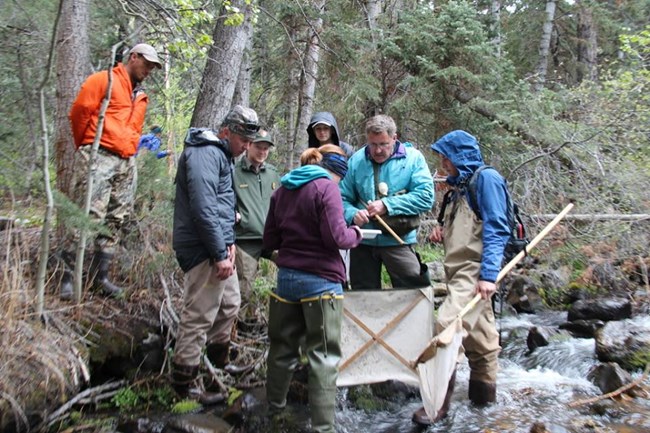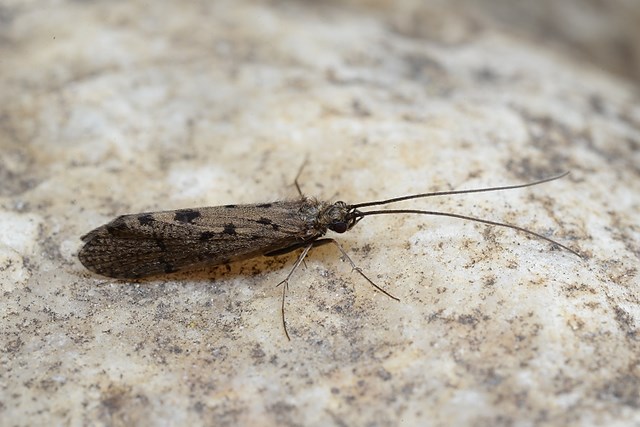Part of a series of articles titled The Midden - Great Basin National Park: Vol. 16, No. 1, Summer 2016.
Article
2015 Stream Insects BioBlitz Results
This article was originally published in The Midden – Great Basin National Park: Vol. 16, No. 1, Summer 2016.

Photo by Riley Nelson
Great Basin National Park held its seventh annual BioBlitz on May 15-17, 2015. The focus for the BioBlitz was Stream Insects, including the orders that indicate good water quality: Ephemeroptera (Mayflies), Plecoptera (Stoneflies), and Trichoptera (Caddisflies).
Dr. Boris Kondratieff from Colorado State University served as the lead entomologist, with assistance from Dr. Riley Nelson of Brigham Young University. Dave Ruiter, the leading expert on caddisflies in the American West also attended, as well as the Nevada State Entomologist and his crew and eleven park employees. Citizen scientists from several states participated in the event, and in total more than 35 people spent over 500 hours helping find and identify stream insects.

Photo by Riley Nelson
In those 23 samples we identified 2366 specimens in 99 different taxa for a mean of 103 specimens per sample. Additional species were found by sampling more broadly and qualitatively, for a total of 107 species (Table 1).

Last updated: March 19, 2024
